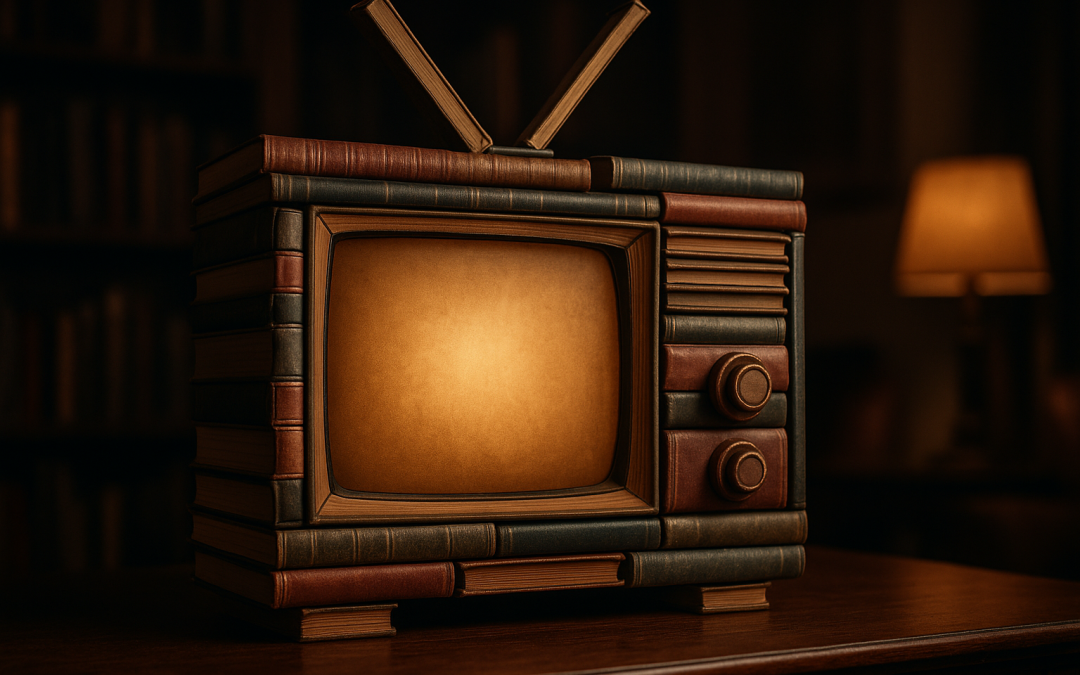If you love books where magic hides in plain sight—inside city alleys, crumbling libraries, or deep in family trauma—you’ve probably dipped your toes into contemporary fantasy. And if you’ve ever shouted, “They better not ruin this adaptation!” when your favourite novel gets picked up for TV… well, you’re not alone.
Urban fantasy and magical realism don’t always translate easily to the screen. The stories are strange. The pacing is unusual. Sometimes the magic is so subtle, it’s more of a feeling than a spectacle. But when it works? It really works.
Let’s take a look at 9 standout examples of contemporary fantasy—emphasis on urban fantasy and magical realism—that have been adapted to TV.
We’ll talk about what made them special, what the showrunners changed (for better or worse), and how fans felt about it all.
1. American Gods – Neil Gaiman’s mythic road trip got the prestige TV treatment… then fell apart
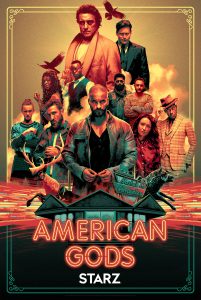 When Starz adapted Gaiman’s cult classic about old gods battling new ones across American backroads, Season 1 blew people away. It was strange, ambitious, and visually stunning. Shadow Moon and Mr Wednesday felt plucked straight off the page.
When Starz adapted Gaiman’s cult classic about old gods battling new ones across American backroads, Season 1 blew people away. It was strange, ambitious, and visually stunning. Shadow Moon and Mr Wednesday felt plucked straight off the page.
But then things got messy. Showrunners left. Key cast members disappeared. And the later seasons struggled to keep the same spark. Some fans loved the extended storylines for Laura Moon and Mad Sweeney. Others just wanted the plot to move forward.
Still, it gave us a talking Technical Boy and Ian McShane as Odin. Worth it? Depends how much chaos you’re willing to tolerate in your adaptation.
Status: Cancelled after 3 seasons
Fan verdict: Started strong, ended confused
2. One Hundred Years of Solitude – Yes, Netflix really did it. And it’s stunning.
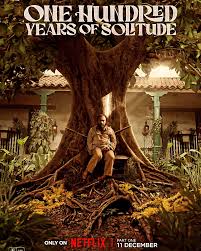 For decades, Márquez’s magical realist masterpiece was considered unfilmable. Too weird. Too dense. Too poetic. But in 2024, Netflix dropped the first half of a 16-episode Spanish-language adaptation—with Márquez’s sons as producers—and somehow made it work.
For decades, Márquez’s magical realist masterpiece was considered unfilmable. Too weird. Too dense. Too poetic. But in 2024, Netflix dropped the first half of a 16-episode Spanish-language adaptation—with Márquez’s sons as producers—and somehow made it work.
It’s faithful without being rigid. Macondo looks and feels like a place out of myth. The timelines are a bit easier to follow (bless), and the showrunners handle the more problematic elements of the book with a modern lens.
Some purists miss the interiority of the novel’s prose. But most viewers agree: this one’s a miracle.
Status: Part 2 in development
Fan verdict: “They actually pulled it off.”
3. Good Omens – What if the apocalypse was charming?
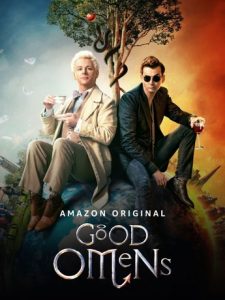 Neil Gaiman and Terry Pratchett’s satirical tale of an angel and a demon trying to prevent Armageddon is full of footnotes, asides, and ridiculous prophecies. Somehow, Amazon turned it into a near-perfect adaptation.
Neil Gaiman and Terry Pratchett’s satirical tale of an angel and a demon trying to prevent Armageddon is full of footnotes, asides, and ridiculous prophecies. Somehow, Amazon turned it into a near-perfect adaptation.
Season 1 sticks close to the book, with Gaiman himself at the helm. It even adds a brilliant extended sequence of Crowley and Aziraphale’s friendship through history—which fans loved. The chemistry between David Tennant and Michael Sheen became so iconic that the fandom dubbed them the “Ineffable Husbands.”
Season 2? That’s where things got spicy. It went beyond the book—and ended on a cliffhanger that split the fandom in two. Season 3 is now in the works, and hopes (and fears) are high.
Status: Season 3 coming
Fan verdict: Season 1 = chef’s kiss; Season 2 = “We have questions.”
4. The Sandman – Another Gaiman hit… and one of Netflix’s best adaptations
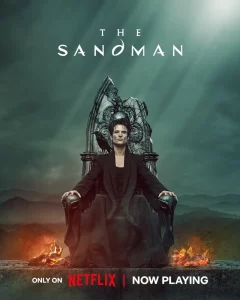 People said The Sandman was impossible to adapt. It’s too surreal. Too literary. Too… everything.
People said The Sandman was impossible to adapt. It’s too surreal. Too literary. Too… everything.
And yet, the Netflix version was a knockout. Faithful in tone, rich in visuals, and willing to tweak just enough (like updating the timeline and gender-swapping Johanna Constantine), it brought Dream and his world to life for a whole new generation.
Fans loved the casting (especially Kirby Howell-Baptiste as Death), the eerie Corinthian subplot, and the balance between horror, myth, and melancholy.
Status: 2 Seasons completed
Fan verdict: Dark, dreamy, and finally done right
5. Lucifer – The Devil ditches Hell for L.A. and solves crimes. Seriously.
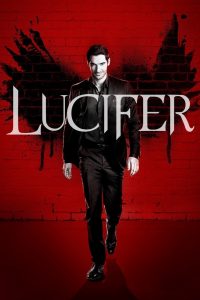 If you’re looking for a faithful adaptation of the Lucifer comic (itself a spin-off of Sandman), you won’t find it here.
If you’re looking for a faithful adaptation of the Lucifer comic (itself a spin-off of Sandman), you won’t find it here.
What you will find is a wildly entertaining procedural about a charming Devil who opens a nightclub and teams up with the LAPD. The show barely touches the comic’s cosmic plots—and fans didn’t care. They loved Tom Ellis’s flirty, piano-playing Lucifer so much they resurrected the show when Fox cancelled it.
It’s sexy, funny, and full of character growth. Not the adaptation fans expected, but one they embraced anyway.
Status: Ended after 6 seasons
Fan verdict: A hellishly good time
6. The Magicians – Narnia meets grad school, with trauma and musical numbers
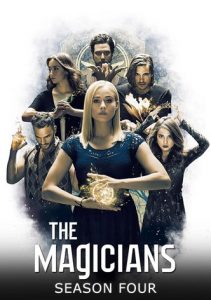 Lev Grossman’s trilogy was a moody, literary take on portal fantasy. Syfy’s version? Think snarkier, sexier, and emotionally brutal—in a good way.
Lev Grossman’s trilogy was a moody, literary take on portal fantasy. Syfy’s version? Think snarkier, sexier, and emotionally brutal—in a good way.
The show starts close to the first book, then veers off boldly. It kills off its main character (Quentin), leans into ensemble storytelling, and introduces everything from talking sloths to ‘80s-style musical episodes. Not everything worked, but it took risks, and many fans loved it more than the books.
Notably, it tackled themes like trauma, addiction, and grief with surprising nuance, wrapped in pop culture references and spellcasting drama.
Status: Ended after 5 seasons
Fan verdict: Wild, uneven, unforgettable
7. Shadowhunters – A messy, melodramatic, queer teen fantasy that fans refused to let die
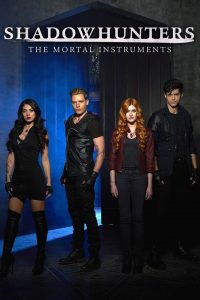 Based on Cassandra Clare’s bestselling Mortal Instruments series, Shadowhunters started on Freeform with a flashy, slightly awkward first season. But it quickly found its footing—and its audience.
Based on Cassandra Clare’s bestselling Mortal Instruments series, Shadowhunters started on Freeform with a flashy, slightly awkward first season. But it quickly found its footing—and its audience.
It modernised the world, gave minor characters bigger arcs, and leaned hard into fan-favourite ships like Malec (Magnus and Alec). The CGI wasn’t always great, but the representation was, and the cast had real chemistry.
When the show was cancelled, fans fought back with global campaigns, Times Square billboards, and more. The two-hour finale wasn’t perfect, but it gave viewers the closure they deserved.
Status: Ended after 3 seasons and a finale special
Fan verdict: Not book-accurate, but deeply loved
8. A Discovery of Witches – Adult romance, academic magic, and some seriously good wine
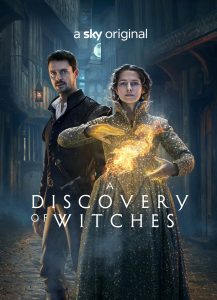 Based on Deborah Harkness’s All Souls trilogy, this UK-produced series is all moody lighting, slow-burn romance, and historical fantasy.
Based on Deborah Harkness’s All Souls trilogy, this UK-produced series is all moody lighting, slow-burn romance, and historical fantasy.
Diana, a reluctant witch and historian, meets a vampire geneticist (yes, really) in Oxford. They fall in love, time travel to Elizabethan London, and try to uncover a magical manuscript that might explain the origins of all supernatural creatures.
It’s sexy, sophisticated, and shockingly faithful to the books. Deborah Harkness served as executive producer, and it shows.
Status: Completed all 3 seasons
Fan verdict: A faithful, grown-up fantasy love story
9. Bonus Mention: Netflix’s Shadow and Bone tried to mix genres, but isn’t quite “contemporary” fantasy
We’re skipping epic fantasies like The Rings of Power, The Wheel of Time, and Shadow and Bone since they’re set in wholly invented worlds.
But we’ll give Shadow and Bone credit for borrowing urban fantasy pacing—and Kaz Brekker’s crew deserves their own spin-off.
So… What Makes a Fantasy Adaptation Work?
It’s not just about sticking to the plot. Fans want respect for the tone, the themes, and the heart of the story.
Some of these shows (Good Omens, One Hundred Years of Solitude) stay incredibly faithful. Others (Lucifer, The Magicians) go off-book in brilliant ways. The key is doing it with intention—and a deep understanding of what made the book beloved in the first place.
And let’s not forget the fans. From global campaigns to meme culture, they’ve shaped which stories get told, saved shows from cancellation, and demanded better representation.
So if your favourite magical novel hasn’t hit the screen yet… don’t lose hope. Someone out there might be dreaming up the next great adaptation right now.
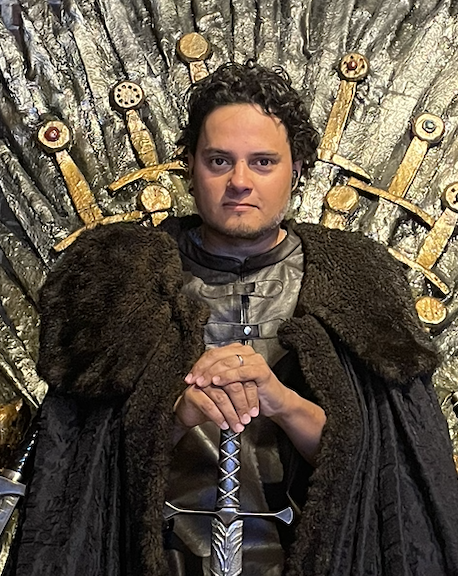
D.P. Martinez is a contemporary fantasy author specialising in urban fantasy and magical realism. He holds an M.A. in English Literature from the University of Greenwich, where he focused on Literary London. His research explored metaphorical representations of London in urban fantasy. He has written hundreds of articles and several books across both fiction and non-fiction.

